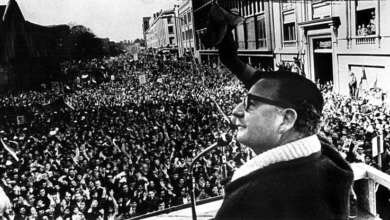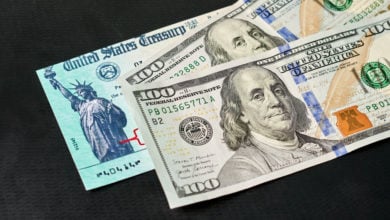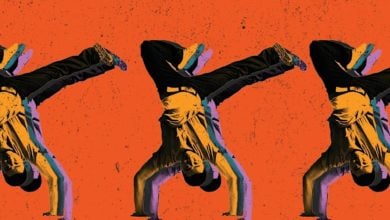Transcribed by Joe Delaplaine
The following is a rush transcript of the third segment from the Sept. 9 episode of Loud & Clear with Brian Becker on Radio Sputnik. Copy may not be in its final form. Click here to listen to the entire episode.
Brian Becker (BB): Welcome back you are listening to “loud and clear”, I’m Brian Becker. Today marks the 45th anniversary of the beginning of the Attica prison Uprising in which over one thousand prisoners took control of the facility in Upstate New York demanding political rights and improved conditions for the Prisoners. The lessons of this Rebellion continue to be relevant today we are joined by Dr. Anthony Monteiro, a W.E.B. DuBois scholar, and long-time activist, from Philadelphia, welcome, Dr. Monteiro
Anthony Monteiro (AM): Thank you very much, Brian, it’s great to be with you as usual.
BB: On September 9th, 1971, two weeks after the killing of George Jackson at San Quentin State Prison, a thousand prisoners in the Attica facility –out of the approximately 2,200 inmates– seized control of D-Block. A big part of the prison, taking 42 of the staff hostage. The next four days [the Attica prisoners] were in negotiations, but at the end of it, Anthony Monteiro, Nelson Rockefeller ordered one of the biggest massacres [of prisoners] in American history. Talk about what happened.
AM: And you’re right to call it a massacre. The prisoners at Attica were not only standing up for their rights they saw themselves as part of the widening and deepening struggle for Black Liberation at that time and therefore they saw themselves standing up for the rights of all black people and, as the young spokesperson for the Attica prisoners stated, “We stand up for right to be treated as human being and we are beasts and we will not be driven, as beasts are driven.”
And in a sense, he was not just talking about prisoners on the inside. He was talking about the literally colonized and oppressed African American people throughout the United States at that time.
And as you know, prisoners at the moment in history, were highly politicized they were deeply influenced by the writings of George Jackson, a prisoner in California.
And when he was assassinated two weeks earlier it deeply affected the most conscious element in the prison population across the country.
And as you know, there were highly organized political groups within the prisons. There were Black Panthers, Black Liberation Army people, there were members of the Nation of Islam
The prison was a like a school in revolutionary politics, so on September 9th, when the prisoners seized D-Block, it was a stance on behalf of Black Liberation and indeed it stands as fact, even today.
BB: Anthony Monteiro, I was 18 years old at the time. I lived in Rochester, New York. I was part of the group called “The Prisoners Solidarity Committee”. I was at the prison, I sat outside with the relatives of inmates who had come from Rochester, Buffalo, and New York City. Mostly Black family members. Attica was a white, sort of “redneck” town, small town. Guards came from there.
There were forty-two hostages taken by the prisoners when the prison was seized. So the town [of Attica] had a lynch mob mentality, it was very tense in the area. One of the things that was remarkable, from my point of view was… you know, this was called a “riot”. When you look at Wikipedia, this is called a “riot”. This was not a riot, it was an organized rebellion.
When you sat outside the prison, as we did for those four days, you could hear the prisoners on the intercom making democratic decisions about what to do and what not to do.
On Sunday, September 12th, a day before the massacre, you could hear on the intercom, before legions of police, and State Police and National Guards were making “pincer” movements [a military maneuver where an enemy is attacked from two different sides, simultaneously, to “pinch” the enemy being targeted] towards the prison, as a helicopter flew overhead.
The Governor of New York State, Nelson Rockefeller, gave the prisoners an ultimatum, and there were three parts to the ultimatum. Then the prisoners got up –this was remarkable– [the prisoners] got on the intercom, you could hear it from miles away in fact. And they said, “There is an ultimatum. They say if we do not agree to these three demands, they are coming in after us.”
Then the prison spokesperson said, “What do you say about demand number one?”, and you could hear the prisoners yell, “NO!”
“What about demand number two?”
“NO!”
“Demand number three?”
“NO!”
And then all the police started to converge on the prison. This was Sunday, eighteen hours before the massacre. This was not a “riot”, Dr. Monteiro, this was an organized rebellion of oppressed people and, as you said, an extension of the outside struggle for liberation.
AM: Yes, there’s no question about it. And the leaders of the rebellion at Attica must be remembered as heroes of the struggle for Black freedom.
And for that reason, what went on there is shrouded in mystery, and have been sealed by courts –the documents– of what went on there. To prevent a full understanding of what went on.
You’re right, [the Attica prisoners] organized a form of direct democracy, and the leaders protected most of the guards –the white guards– from prisoners who wanted to take retribution against them for things [the guards] had done to the prisoners over the years. But the leaders protected most of the guards.
It was the police and Nelson Rockefeller who unleashed a racist mob of armed, white people against an unarmed group of prisoners, whose main demand was –and this is where Rockefeller said, “The negotiations can go no further”– when [the prisoners] said they wanted amnesty and protection from retribution and legal action for the leaders and any of those prisoners who had participated in the rebellion.
And Rockefeller and those said, “We’ll never do that!”, and on that point, the negotiations broke down, and the massacre began.
And again, the blood of Attica is not just on the hands of those guards that carried it out, but most importantly, on Rockefeller and the officials of the State of New York.
BB: It’s really quite amazing when you think about the point you just made: [the prison officials & police] had agreed that 28 of the prisoners demand. The prisoners had a whole long list of demands because conditions were so vile; because people really were living like animals rather than as human beings; as a consequence of the way prisons were run –and still are run– in New York State and around the United States.
Twenty-eight were met, but when it came to the idea of “amnesty”, which is common demand, like when workers go on strike. [Workers] go on strike, and in the end, the bosses say, “well, we want to prosecute the [strike] leaders.”
Frequently, the unions would say, “that’s off the table! If we’re going to settle this thing, we’re going to not have retribution for those who led this strike.”
But in the case of the prisons –and the prisoners ARE workers, but they have no right, they have not “collective bargaining” rights, they have no first amendment rights– thus any [prisoner] protest has to take the manifestation of a rebellion because there’s no outlet.
So when the [Attica] prisoners said, “We don’t want our leaders sent to prison for life, for having risen up in a righteous cause”, it was then that Rockefeller said, “No, we’ll go in and just slaughter them.”
Is that because a victory of that type for prisoners would have been a signal to other prisoners, “hey, ‘justice is possible'”?
To me, it seemed to be a signal from the ruling class of America, “we cannot tell you ‘it’s right to rebel’, ‘it’s okay to rebel’ or ‘you will WIN from rebellion’!”
AM: Yes, I think you’re absolutely right. And of course you have to look at the politics of the country at the time: Richard Nixon’s the President, the war in Vietnam is going forward, there’s rebellions going on all over the country, including in the prisons –including in Angola. Angola prison, where three prisoners… the last one to be released, Albert Woodfox, was released after forty-two years in solitary confinement!
The “defense of rebellion”, of militancy across the nation, and the fact this was influencing world public opinion about: the United States, the war in Vietnam, the treatment of African Americans.
Angela Davis had recently been arrested and was going on trial for murder in California. Huey P. Newton had just done over three years in solitary confinement as he awaited trial for a murder he did not commit. The Black Panther Party was growing. There was a sense that American democracy as it related to Black people no longer existed. But the other side of it is, Black people, be they in prison or outside of the prison, were prepared to rise up in rebellion against the system that oppressed them.
That [widespread rebellion] had to be put down. So, from Nixon to Rockefeller –to the Commissioner of Prisoners in the State of New York, down to the guards and police who carried it out– they were all aware that this was a political rebellion. And that it was part of political militancy, and response to the oppression of Black people.
As a consequence, after Attica, things got worse in America’s prisons. Especially for Black and Brown people. The police have increasingly become more militarized. And we see what we see today.
But this [militant rebellion] happens as economic conditions deteriorate, as the United States today is involved in “wars without end”. So Attica, might be considered the beginning of a process that is now, perhaps, coming to fruition, or reaching a new stage.
BB: That is so interesting, as a summary, Dr. Monteiro, because Nelson Rockefeller –even though he was part of the Rockefeller family, [which was] one of the big sixty families [and they were members of] the big, capitalist ruling class in America– he was also the liberal wing of the Republican party. Yes, liberal wing existed!
And [Rockefeller] was the perpetrator of the massacre in many ways, it seemed to me at the time.
Of course I was really young, but given what happened in the months and years shortly [after Attica], and based on what you say reminds me of it it, it seemed, in a way, like the end of the Sixties. Meaning, the concessions the government and corporations had started to make in ’67, ’68, ’69 –of course starting earlier with the Voting Rights Act of ’64 and ’65.
But now you have the liberal wing of the Republican Party, in power, in New York State. They could have negotiated an end to this Rebellion. The prisoners didn’t want to be slaughtered they wanted Justice. The [prisoners] wanted an improvement in their lives, they knew if the prison was stormed, there would be a complete massacre. As you said, but they [the guards, Rockefeller and the police] didn’t negotiate. And, it seemed to me, afterwards, [this resulted in] the end of the Sixties, the end of liberalism, and the beginning of a new trend. What do you think?
AM: I think, Brian, that’s is the way we have to look at it. [It was also] the beginning of the struggle for human rights.
What the prisoners at Attica were saying was, “The struggle for ‘civil’ rights is not adequate for those of us in prison”, and for most of the Black community who were living in impoverished communities, be they in the North, the South, big cities or small towns. In ghettos, wherever we were. This struggle had become a struggle for human rights. For economic rights. Or, as [Martin Luther King, Jr.] said, “Ending war, because war is the enemy of the poor.”
Poverty, after 1965, ’66, “Poverty” became the central issue in the struggle for Black Freedom. Now, that intertwined with the struggle against police brutality.
If you think we’re talking about that today, you’re right, we are. Because, yesterday is today. What was going on back then, is not that different –maybe worse– today.
So I would agree with you completely, I think the Ruling Class, as represented by Rockefeller, who was an alleged “Liberal Republican” –far more liberal, by the way, than Barack Obama or Hillary Clinton are.
But the “Liberal Wing” joined with the more repressive –outwardly “Progressive Wing”– in its recognition that Black Resistance of a militant character could not be tolerated. And would have to be wiped out. And this goes beyond COINTELPRO.
You know, in a lot of ways we associate Attica, which happened two weeks after the brutal assassination of George Jackson. We associate the two [events]. But we could also go back to the FBI and Chicago Police murder of Fred Hampton, in his bed. Or the murder, ten months earlier, at UCLA, of the two leaders of the Black Panther Party, Bunchy Carter and John Huggins.
So this “Scorched Earth” policy, this policy of murdering and wiping out any manifestation of Black Militancy, of Black Radicalism, of Black Revolutionary Consciousness and organization. They understood how the pendulum of public opinion –especially among Black people– was moving towards supporting militant Human Rights organizations.
And how this was influencing younger, white people, like yourself, on college campuses and in other places. This was a moment, pregnant with enormous possibility. The fact that it was cut short is not due to a lack of commitment, consciousness and ideological clarity of the radicals, militants and revolutionaries of that time.
It was due to the overwhelming force of the State, brought down on our movement at that time.
BB: We are going to have to leave it there. That was the voice of Dr. Anthony Monteiro, a W.E.B. DuBois scholar, and long-time activist, in Philadelphia. This is the forty-fifth anniversary of the beginning of the Attica Rebellion. We are paying homage to the heroes –and martyrs– who forty-five years ago, today. You are listening to “Loud and Clear”. We’ll be back.






